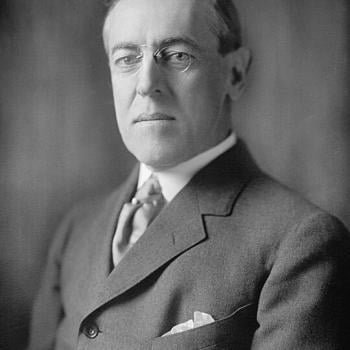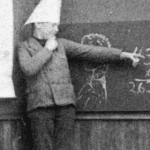Lectionary Reflections
Mark 13:1-8
November 18, 2012
This text reminds me of the old story about the optimistic boy who woke up early on his birthday and looked out his window to see a giant pile of manure in the yard outside. He ran downstairs, got a shovel, and started happily shoveling. "What are you doing?" asked a friend. "I know there's got to be a pony in there somewhere!" said the boy.
This text reflects Jewish apocalyptic theology's vision of the time of suffering preceding the coming of the Messiah, which was sometimes described in terms of labor pains (France, 509). Jesus doesn't specifically answer the question the disciples ask in 13:4 "When?" The wars, earthquakes, and famines show only that the birth is coming, not when it will come.
Mark places this text right before the passion of Jesus. The message to his persecuted community is that they need to prepare to participate in Jesus' suffering and eventual victory by maintaining their witness to the truth in difficult times. The text intends to give them hope and encourage steadfastness in the faith in the face of challenges to come. To seek in this text a detailed schedule of the events of the end-time is to misunderstand its purpose, which is to encourage persistence in the present, not to peer into the future. New Testament scholar Hugh Anderson describes this text as issuing "an appeal to faith to recognize that concealed in the tribulations of the present lies the coming glory of God to be manifested finally in the parousia of the Son of man, whose own triumph is hidden in Jesus' way of the cross" (Anderson, 289).
This text on the surface seems filled with bad news and warnings of tribulations to come:
Bad News:
- Not one stone will be left here upon another; all will be thrown down (13:2).
- Nation will rise again nation, and kingdom against kingdom; there will be earthquakes in various places; there will be famines (13:8).
- Brother will betray brother to death, and a father his child, and children will rise against parents and have them put to death, and you will be hated by all because of my name (13:12-13).
Warnings of Tribulations to Come:
- Beware that no one leads you astray (13:5).
- They will hand you over to councils; and you will be beaten in synagogues; and you will stand before governors and kings because of me, as a testimony to them (13:9).
Comfort and Good News:
Fortunately, in this pile of bad news and warnings, there is also some comfort and good news to be found:
- Do not be alarmed when you hear of wars and rumors of wars (13:7).
- Do not be alarmed when nation rises against nation, and kingdom against kingdom (13:8).
- Do not be alarmed when there are earthquakes in various places and famines (13:8).
Assurance #1: In tough times, we will be given words to speak.
Do not worry beforehand about what you are to say; but say whatever is given you at that time, for it is not you who speaks, but the Holy Spirit (13:11).
I take this to be an assurance that the Holy Spirit will support us in trying times and that we need not be filled with dread over trials that lie ahead. However, I don't take it as an excuse to renege on our responsibilities to use our gifts for God in the present. After all, Mark 13:10 tells us that "The good news must be proclaimed to all nations."
Martin Luther famously tried slacking off once. He depended on the Spirit to take up the slack, but it didn't work out very well. The story goes that Luther, when a professor at the University of Wittenberg, decided one week that he would take Mark 13:11 at face value. He spent no time whatsoever on his Sunday sermon and instead worked on his commentary on the Psalms. He later recounted what happened when he ascended the high pulpit of the Castle Church at Wittenberg and looked out over the sea of expectant faces. "Sure enough, the Holy Spirit spoke to me, and the Spirit said, 'Martin, you didn't prepare!'"
Assurance #2: The one who endures to the end will be saved (13:13).
Winston Churchill (1874-1965), British orator and Prime Minister during World War II, knew about persistence during wars and rumors of wars. He famously said, "Never give in, never give in, never, never, never, never, in things great or small, large or petty, never give in except to convictions of honor and good sense."





